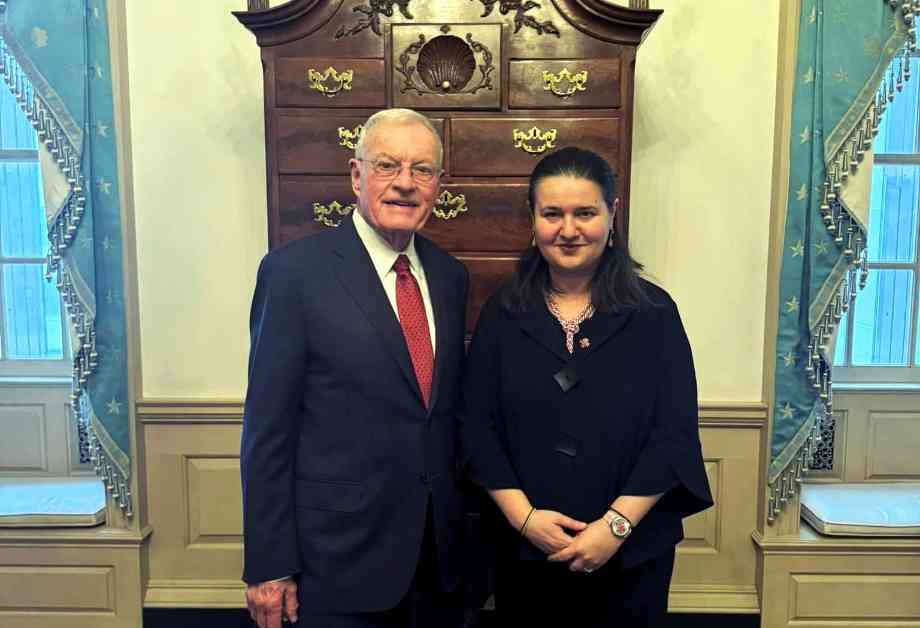The Trump administration is gearing up to intensify pressure on Russia through stricter sanctions enforcement while simultaneously seeking a negotiated resolution to the conflict in Ukraine. This development, as reported by the New York Post on 6 February 2025, underscores a pivotal moment in international relations with far-reaching implications for global security and diplomatic efforts.
Newly inaugurated US President Donald Trump made ambitious promises to resolve the Russo-Ukrainian war swiftly, vowing to bring an end to the conflict within the first 24 hours of his presidency. Subsequently, the timeline for this commitment extended to 100 days, reflecting the complex nature of the geopolitical landscape and the challenges inherent in achieving lasting peace in the region. The urgency of addressing the Russo-Ukrainian war stems from the potential risks posed by a frozen conflict scenario, which could allow Russia to regroup, strengthen its military capabilities, and potentially launch a more formidable offensive in the future.
Special envoy Keith Kellogg, a key figure in the administration’s strategic approach, emphasized the need for ramping up sanctions against Russia, citing the current level of enforcement as a mere “three” on a scale of one to ten. Kellogg highlighted the potential for imposing additional sanctions targeting crucial sectors like oil production and exports, which could significantly increase pressure on the Russian government and compel them to reconsider their actions in Ukraine.
A critical moment in the administration’s strategy unfolded during a high-level meeting in the Oval Office on 30 January, where President Trump convened his national security team, including Vice President JD Vance and Treasury Secretary Scott Bessent. The discussions centered on leveraging the full spectrum of national power to facilitate a resolution to the conflict in Ukraine, underscoring the administration’s commitment to employing a multifaceted approach to address the complex challenges in the region.
Kellogg emphasized the importance of maintaining military pressure on Russia as a precursor to meaningful negotiations while criticizing former President Biden’s approach of offering unlimited aid without corresponding pressure through other national power elements. Drawing parallels to historical examples like the 1905 Treaty of Portsmouth, Kellogg highlighted the necessity of mutual concessions in negotiations, citing the pivotal role of compromise in resolving longstanding conflicts.
In a recent development underscoring the administration’s diplomatic engagement, Ukrainian Ambassador Oksana Markarova held discussions with Keith Kellogg following his official appointment, signaling a proactive approach to engaging key stakeholders in the peace process. The upcoming visit by Kellogg to Ukraine, scheduled for 20 February after his participation in the Munich Security Conference, underscores the administration’s commitment to advancing diplomatic efforts and engaging with key regional actors to facilitate a resolution to the conflict.
As the administration navigates the complexities of peace negotiations and sanctions enforcement, the road ahead is fraught with challenges and opportunities. The delicate balance between pressure and diplomacy will shape the trajectory of US-Russian relations and the prospects for lasting peace in Ukraine. As the international community watches closely, the stakes are high, and the outcomes of these strategic maneuvers will have far-reaching implications for global security and stability.
In conclusion, the Trump administration’s bold approach to addressing the Russo-Ukrainian conflict reflects a nuanced understanding of the complexities at play and the strategic imperatives guiding US foreign policy. By combining pressure tactics with diplomatic engagement, the administration seeks to chart a path towards peace and stability in a region marred by conflict and instability. As the world awaits further developments, the outcomes of these initiatives will shape the future of international relations and the prospects for lasting peace in Ukraine and beyond.

















